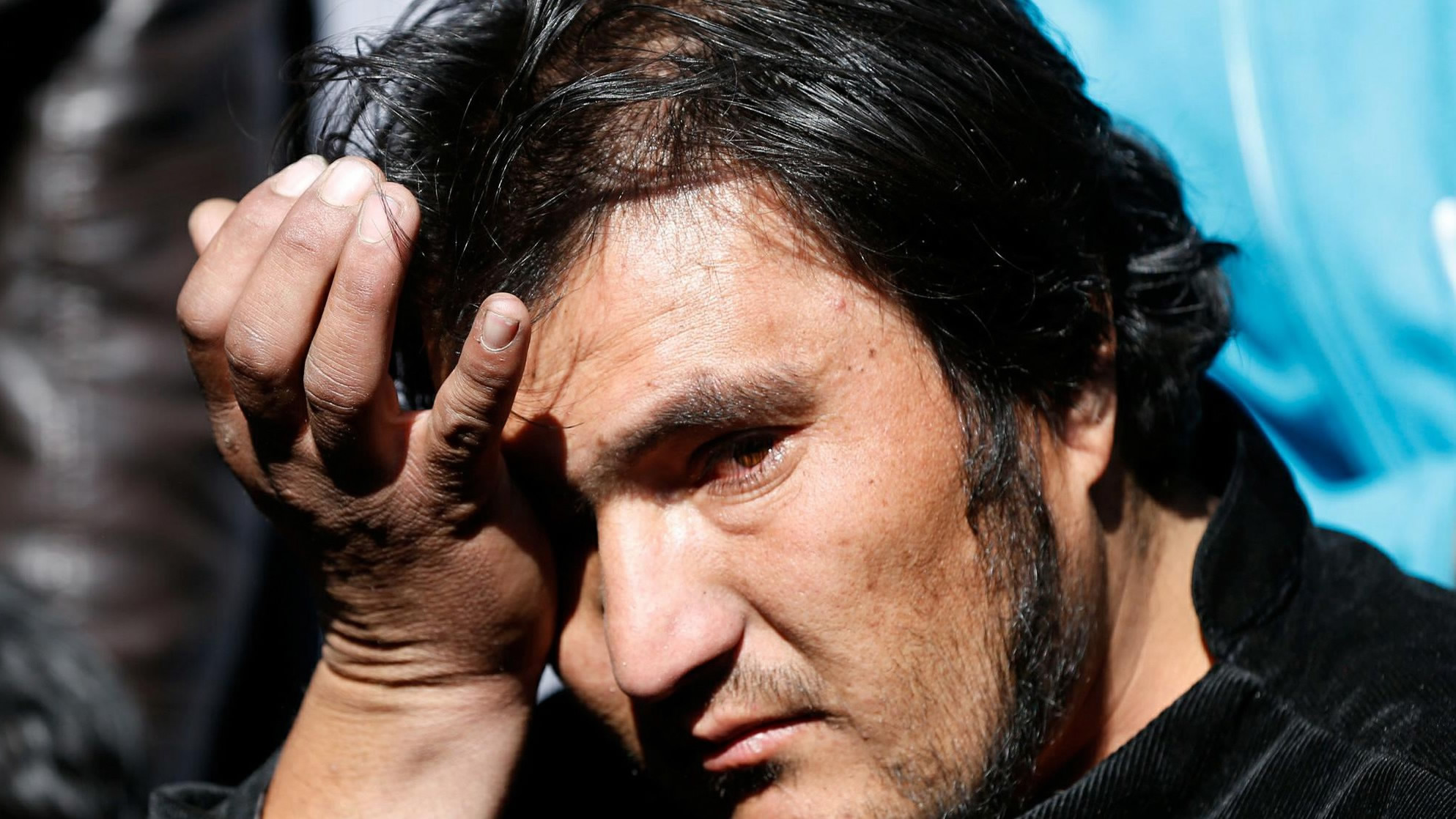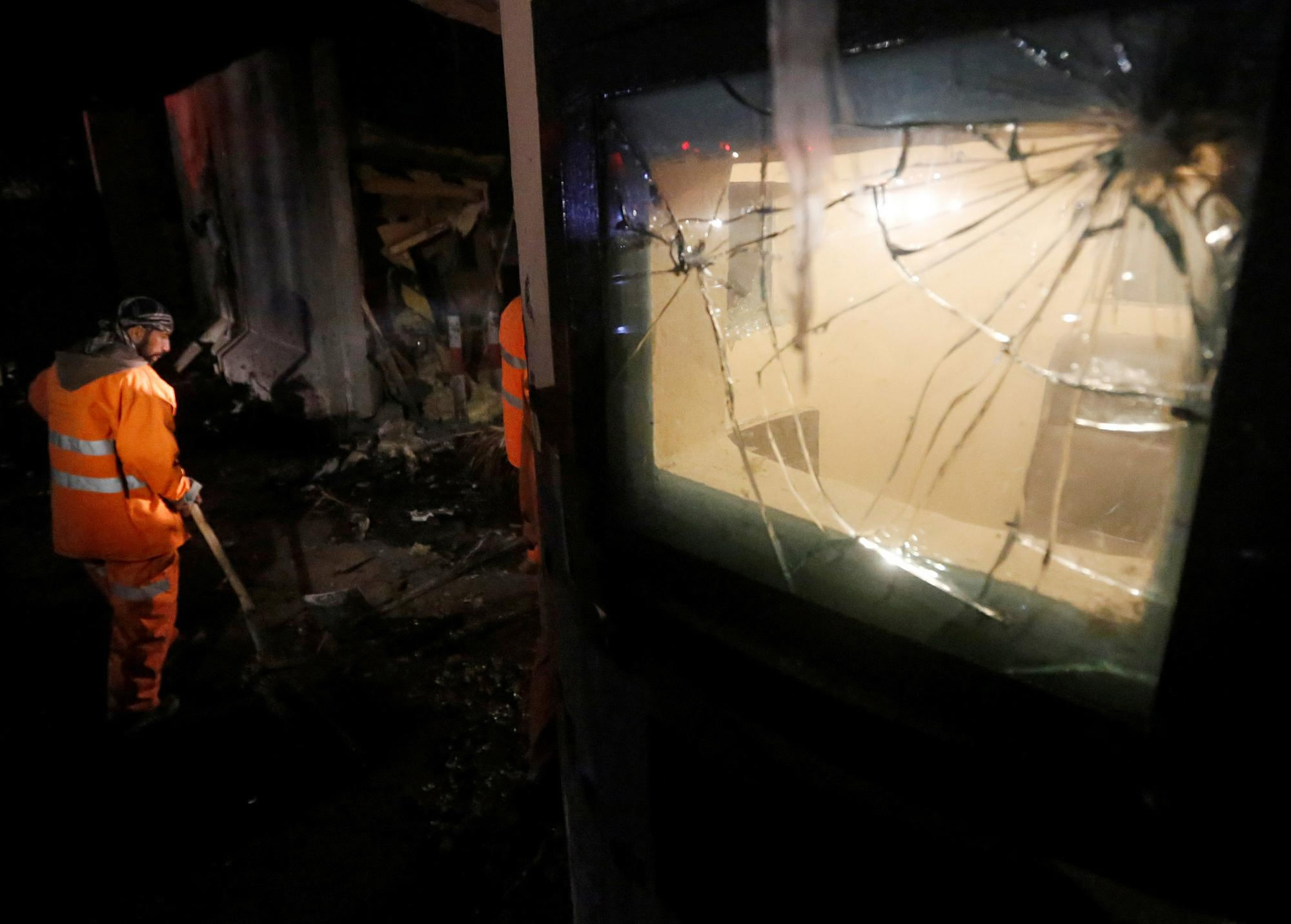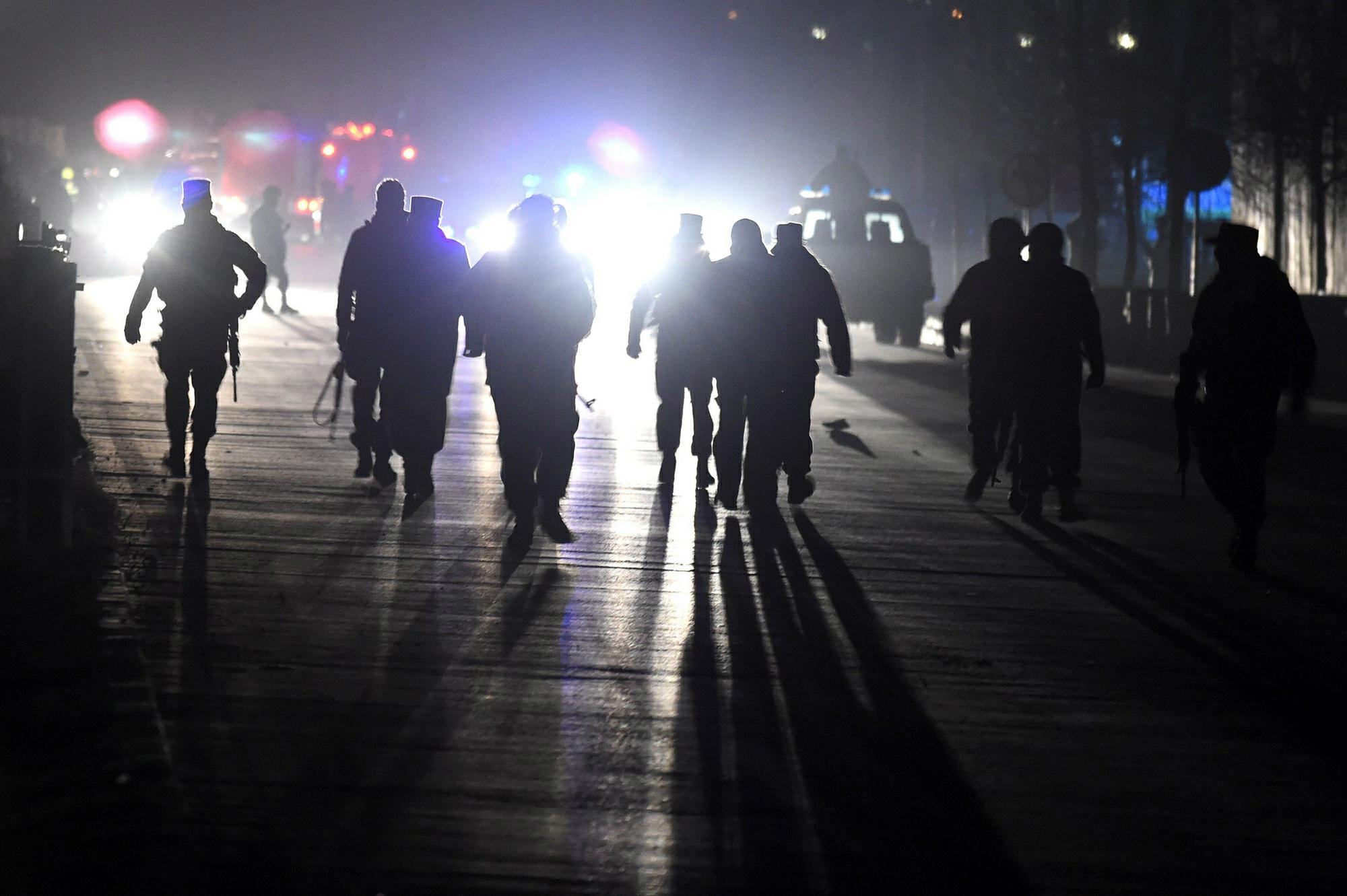
Politics
18:19, 11-Jan-2017
Five UAE officials among Afghanistan bombings
Updated
10:33, 28-Jun-2018

Five UAE officials were among 56 people killed in a string of bombings across Afghan cities, authorities said on Wednesday, as Taliban militants step up a deadly winter campaign of violence.
The Emiratis were among 13 people killed when explosives hidden in a sofa detonated inside the governor's compound in southern Kandahar on Tuesday, while the UAE's ambassador to Afghanistan escaped the attack with injuries.
Just hours before, twin Taliban blasts in Kabul tore through employees exiting a parliament annex, which houses the offices of lawmakers, killing at least 36 people and wounding 80 others.
And earlier on Tuesday, a Taliban suicide bomber killed seven people in Lashkar Gah, the capital of volatile Helmand province, as the militants ramp up nationwide attacks despite the onset of winter, when fighting usually wanes.

Afghan municipal worker removes debris from the site of suicide attack in Kabul, Afghanistan January 10, 2017. /CFP Photo
Afghan municipal worker removes debris from the site of suicide attack in Kabul, Afghanistan January 10, 2017. /CFP Photo
The carnage underscores growing insecurity in Afghanistan, where US-backed forces are struggling to combat a resilient Taliban insurgency as well as Al-Qaeda and ISIL militants.
Kandahar's governor Humayun Azizi and UAE envoy Juma Mohammed Abdullah Al Kaabi were wounded by flames from the explosion, but many others were burned beyond recognition, said provincial police chief Abdul Raziq, who was at the scene when the blast occurred.
The Emirati officials killed were "on a mission to carry out humanitarian, educational and development projects," the UAE's official WAM news agency said on Wednesday.
"This incident will in no way affect the relations and cooperation between Afghanistan and UAE," President Ashraf Ghani said, ordering an investigation into the bombing.
The Taliban denied responsibility for the Kandahar attack, but they said they were behind the Kabul blasts.
In the first explosion, a suicide bomber blew himself up next to a minibus transporting government employees. As rescuers reached the scene, a car bomb exploded.
Among the 36 dead were four policemen who were killed in the second explosion when they rushed to help the victims of the first blast.
Health ministry spokesman Waheed Majroh warned that the toll was expected to rise as many of the wounded were battling for their lives in hospital.

Afghan security personnel arrive at the site of twin blasts near the Afghan parliament in Kabul on January 10, 2017. /CFP Photo
Afghan security personnel arrive at the site of twin blasts near the Afghan parliament in Kabul on January 10, 2017. /CFP Photo
‘Barbaric attack’
Condemning the "barbaric attack," Ghani lashed out at the Taliban for the assault on civilians, which left the area littered with bloodied bodies.
"The deaths of scores of civilians in today's Kabul bomb attacks indicates that the Taliban are pressing ahead with a gruesome campaign of violence that makes no effort to spare civilian lives," Amnesty International said in a statement.
"An immediate, impartial and independent investigation must be carried out to secure justice for the victims and their families."
Tuesday's carnage came just ten days before Donald Trump is sworn in as US president. The situation in Afghanistan will be an urgent matter for the new leader, even though America's longest war got scarcely a passing mention in the bitterly contested presidential election.
Trump has given few details on his expected foreign policy, with even fewer specifics on how he will tackle the war in Afghanistan.
Repeated bids to launch peace negotiations with the Taliban have failed and a fierce new fighting season is expected to kick off in the spring.
(Story by AFP)

SITEMAP
Copyright © 2018 CGTN. Beijing ICP prepared NO.16065310-3
Copyright © 2018 CGTN. Beijing ICP prepared NO.16065310-3